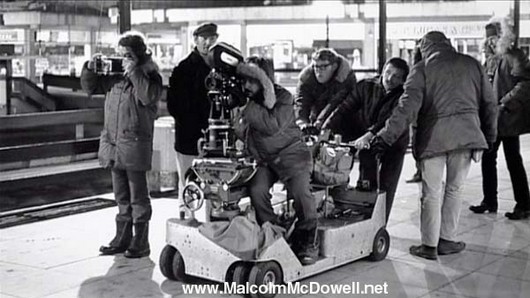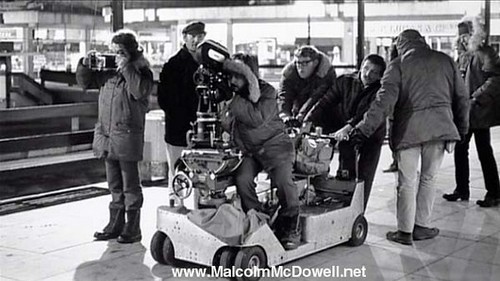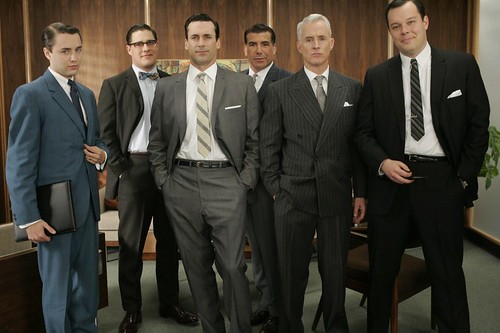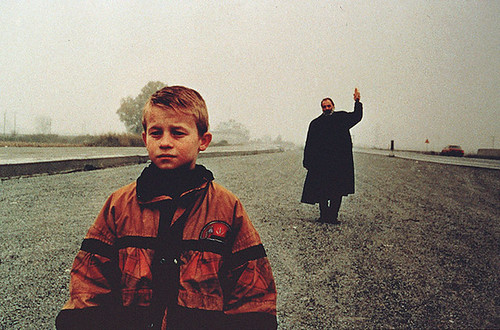
Faculty Profile: Zoran Samardzija

Film school is as much about cinema theory and history, as it is about development and production. Story is paramount, and there would be no films without technology, but because we stand on the shoulders of filmmaking giants, so too is the study of the past. In a letter addressed to and published by the late great Roger Ebert, Cinema Art + Science chair Bruce Sheridan had the following to say; “Cinema studies is just as central to learning to be a filmmaker as it is to learning to be a film critic. Film viewing, analysis, aesthetics, theory, etc. are inseparable from learning blocking, how to read a light meter, or the aesthetics and technical skills of editing”
By far the greatest theory class we’ve taken, and one of my favorite classes throughout my entire studies; Critical Analysis of Contemporary Film & Media was taught to us by Zoran Samardzija. Zoran is Assistant Professor of Cinema Art + Science at Columbia College Chicago. He has published several essays on a variety of subjects including Eastern European cinema, John Ford, Sam Peckinpah, David Lynch, and even Star Trek. Few professors have had such a profound impact on me.
What is the first film you remember having some form of emotional impact on you?
I remember watching Stanley Kubrick’s A Clockwork Orange at an inappropriately young age. While I can’t say I understood it then, I was fascinated by its look and feel. It had a bizarre texture that disturbed and confused me. Oddly enough, today, it’s one of my least favorite Stanley Kubrick films.

Did that influence the path you’ve taken in life? Or, was there a particular event or time that you recognized that film was more than just a hobby, and would instead become a vested part your life?
I’m not sure I believe in things like “paths.” That implies life isn’t a confluence of chance, randomness, and conflicted desires. Nevertheless, I became more serious about my obsession with film late in my undergraduate years. The more I explored philosophy, aesthetics, and political science, I found film to be the perfect synthesis of all of those things.
What distinguishes film from other art forms? Including television.
It used to be easier to distinguish film or cinema from other art forms. It was that thing projected on celluloid in theaters. Simple as that. But I think in the digital age of multiple screens and media convergences, where there are many forms of narrativized images such as video games and television, cinema becomes a particular mental experience of organized images. For me, cinema is an ellipsis based visual exploration of rhythm, tempo, and psychological reflection and/ or identification. That may sound too abstract but I think that serial television at its best (recent examples such as Mad Men or Breaking Bad) is about character and story and better at it than most movies. While cinema can encompass those things, the best films for me operate on the level of pure affect and curiosity about the world—something like visual music.

What makes a film great for you?
My answer above probably comes close but, honestly, I’m increasingly less interested in the idea of “great.” I am often fascinated by bad or trashy films which contain moments of weird truth or insight. There are more great moments and scenes than great movies. For me, the cinematic crime is unadventurous banality.
It’s Friday, and you’ve had a shit week. Thankfully you’ve no plans for the rest of the weekend, so Saturday is going to be a day for pizza and a movie marathon. What three movies? And what flavor pizza?
I’m more likely to listen to music if I needed art for therapy. That said, if I wanted a movie marathon to go along with my gluten free pizza (sausage and garlic) I would probably watch three Westerns—three I haven’t watched before ideally, which is difficult since I’ve seen more Westerns than most people. If I couldn’t find any Westerns I’d go for rewatching some Star Trek films.
Dinner party: You, and four people from the world of film, dead or alive. Who and why?
I would probably pick the four directors I want to talk with: Theo Angelopoulos, Raoul Ruiz, Andrei Tarkovsky, and John Ford. I can’t imagine they’d agree on anything but I’d have fun.
Last words?
I sometimes joke that my last deathbed words should be “Meh.”
